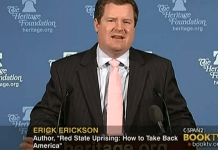The Telegraph newspaper group, which includes the Daily Telegraph, Sunday Telegraph, and The Spectator magazine, is once again up for sale. This comes after a bid by a consortium backed by investors from the United Arab Emirates fell through.
The consortium, led by Abu Dhabi-backed investment fund RedBird IMI, announced that it was withdrawing from the proposed acquisition. They believed the deal would have benefited the newspapers, their journalists, and the wider UK media landscape. However, they stated that it was no longer feasible to proceed with the acquisition.
The proposed sale faced opposition from the British government, which expressed concerns about the potential impact on freedom of expression and the accurate presentation of news. In response, the government announced plans to introduce legislation to prevent foreign state ownership of British newspapers and magazines.
Additionally, officials launched a probe into the potential impact of the deal on freedom of speech. Ofcom, the media watchdog, raised concerns about how the proposed takeover could affect the accurate presentation of news and the expression of opinion in the publications.
The Telegraph newspapers have close ties to the Conservative Party, which currently governs the UK. This political alignment may have contributed to the government’s concerns about foreign ownership.
RedBird IMI, the investment fund behind the failed acquisition, is supported by U.S. financial firm RedBird Capital Partners and Sheikh Mansour bin Zayed Al Nahyan, a member of Abu Dhabi’s royal family and the UAE’s vice president. The fund is led by former CNN chief Jeff Zucker.
Last year, RedBird IMI reached an agreement with the Barclay family, the previous owners of the Telegraph Media Group, to provide loans and ensure the family’s debts, totaling around 1 billion pounds, were paid off. The Barclay family had owned the influential newspaper and magazine before they were put into receivership.
In addition to the media holdings, the Barclay family also previously owned London’s Ritz Hotel, which they sold in 2020.
The collapse of the proposed sale raises questions about the future ownership and direction of the Telegraph newspaper group. It also highlights the complexities of foreign investment in the UK media landscape and the government’s role in regulating such transactions.
Moving forward, stakeholders will need to consider how to address concerns about media ownership, freedom of expression, and the accuracy of news reporting in an increasingly globalized media environment.























